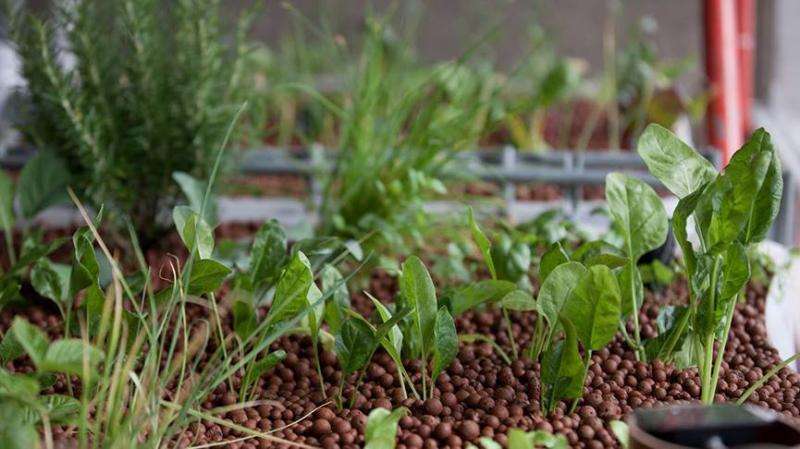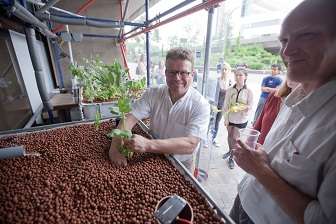Is fish poo the key to feeding the world's growing population?

Feeding a growing world population is one of the greatest challenges society faces – and fish poo could be the answer, according to a group of students at the University of Sheffield.
A team of second year undergraduates have today (8 June 2016) opened a Resilience Food Farm on campus, combining fish farming and vegetable growing – using waste from the fish as a fertiliser.
The fish will produce ammonia, which is translated into nitrates by beneficial bacteria. The plants then suck the nitrates out of the water and the clean water goes back to the fish. The process is known as aquaponics, combining hydroponics (growing vegetables in water) and aquaculture (growing fish).
The students will grow leafy greens such as chard, lettuce, rocket and sorrel, and experiment with broad beans, strawberries and leeks, to test the aquaponics system as a method for producing sustainable food for the future.
The project is part of Achieve More: 10bn – a pioneering initiative by the University where second year students from across all Faculties came together to explore the challenges the world will face as the population reaches 10 billion.
"We need to grow food in more places – for example, in the nooks and crannies of cities and towns," said Professor Hamish Cunningham, who is leading the aquaponics project.
"The more we can meet our basic needs like food and energy in our local communities, the more resilient those communities become – and the less scarce the resources we use in the process, the more sustainable our lifestyles become."
Aquaponics is a high density, low-impact agricultural method of creating clean food sustainably which may be seen as a positive alternative to mass production, factory farming and air miles.
As part of their work, the students will also assess what will work best in the UK's climate and what costs are involved in building and running this kind of system.
Achieve More is a new addition to University's curriculum and gives undergraduates the chance to work alongside students from other disciplines to develop potential solutions for a range of real-life global problems.

It gives all students at the University the opportunity to extend their academic and personal development by combining research-informed subject knowledge with wider transferable skills, professional competence, cultural agility and real world engagement.
Professor Wyn Morgan, Pro-Vice-Chancellor for Learning and Teaching at the University of Sheffield, said: "Collaboration across different disciplines is a really important way of getting an understanding of a common problem.
"The notion that a single discipline has the answer to a particular problem is not right – we need to take different views from different disciplines to get a full and complete picture of the problem, and how to solve it."
Provided by University of Sheffield




















